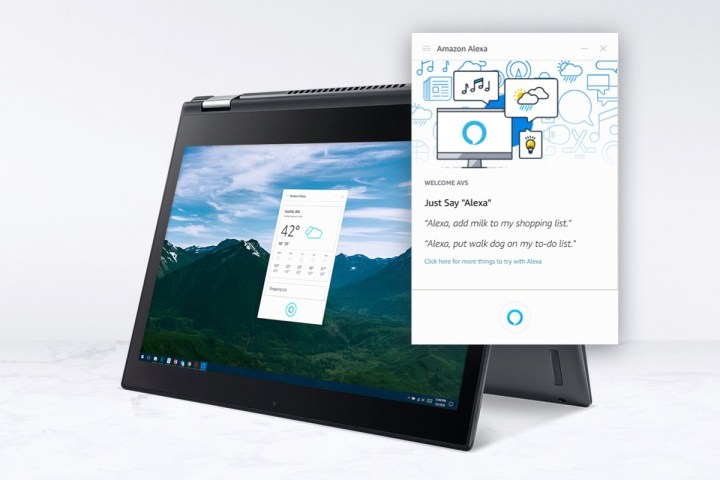
There is an extended “family” of Alexa compatible devices already, including the Garmin Speak Plus dash cam, the Ultimate Ears Boom 2 speaker, and the Moto X smartphone. With the Alexa app though, Amazon is making it possible to utilize
Many of the abilities that already exist with Alexa hardware will carry over to the Windows 10 app. Users will be able to use Amazon Music, SirusXM, and IHeartRadio to listen to music, read books through Audible and Kindle, set reminders, and set up smart home devices, among other abilities. Echo family hardware will have a slightly expanded range of abilities to start with, including wider app compatibility and the ability to make voice calls.
In a short video on the new Windows Alexa app site, Amazon showcases some of its capabilities, including asking questions, utilizing it to alter shopping lists and thermostat controls, and checking account balances.
Slated to make its debut at some point in the first quarter of 2018, Amazon will first launch the app on Windows 10 PCs from Acer, Asus, Lenovo, and HP, with plans to expand the lineup of compatible hardware in the future. We also learned that the app will be available to U.S. customers only for now, thanks to Mary Foley.
Although we don’t have a full list of supported hardware for the upcoming application beyond the manufacturer logos on the Alexa app page, we do have the names of a few laptops that should support it soon. The Acer Switch 7 Black Edition is cited in one product image, as well as the Lenovo Thinkpad X1 Yoga, the HP Pavilion Wave, and the Zenbook UX331.
The question that now arises is how Microsoft will respond. Windows 10 PCs have been one of its flagship platforms for pushing its own Cortana smart assistant. It will be interesting to see what the blue-tinted lady thinks of the competition.
Editors' Recommendations
- Windows 11 tips and tricks: 8 hidden settings you need to try
- Microsoft plans to charge for Windows 10 updates in the future
- The best Windows 10 keyboard shortcuts
- ChatGPT can now generate working Windows 11 keys for free
- PC gamers are flocking to Windows 11, new Steam survey says




